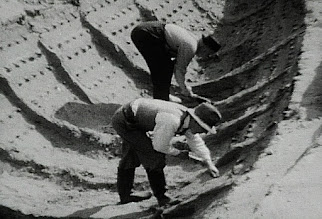A Brief History Of The Celts - Peter Berresford Ellis
Review by Tom
Rating: 8/10
One of history's most mysterious civilisations that were almost eradicated completely by the Romans on their various conquering campaigns. The Celts don't always get the credit that they deserve for their innovative and advanced technology and techniques. I went into this with a very limited knowledge of the Celts, and admittedly some preconceptions that would align more with Roman propaganda than academic learning. I think we're all brought up on the idea that the Celts were ancient savages that ran around terrorising the might of Rome in various war bands, never really settling anywhere. However, this book proved me wrong and then some! The book tends to lean towards the more Continental Celtic peoples than the Insular Celts in the British Isles and Ireland, but Ellis does an incredible job of incorporating as much as he can in a concise and easy to understand way.
It is important from what I've learned from this book and from outside sources, that when referring to the Celts it is mainly from a language perspective than a racial one. All modern European languages (excluding Finnish and Hungarian alongside a few others) descend from one shared ancestor language which we know as Indo-European, as it stretched from the top of Scotland right down to Spain and across to Northern India. This book is very heavy on linguistics to draw comparisons as it shows the common ancestry and shared history the groups of Celtic peoples had since time immemorial. Whilst my explanation won't do it much justice it is fascinating to think that the Vedic mythology of Northern India and the Irish and Welsh mythology have similar heroes and literary themes despite being so far, geographically, apart.
Another aspect that does amaze you is how much the Romans stole off the Celts and then discredited them in some Romano cooption. Military ideas, transport, roads, philosophical ideas, medical ideas and a whole host of other aspects that we have been taught as being distinctly Roman inventions. Even so, the Celts themselves were deep thinkers and an incredibly innovative, industrious people. Their art and architecture is incredibly refined, ornate and breathtakingly detailed, and a lot of our finds are from Celtic burials across Europe. Even linguistically a fair few Celtic rooted words, which were eventually latinised by the Romans, are still in modern use today, such as car and cart. The Celts were also similar to the Vikings, in which they would serve foreign kings and emperors as mercenaries against their number one enemy, which is of course Rome.
There is such a wide spectrum of Celtic history that I'm surprised a lot of it managed to get into the book, whilst I have stated some aspects I feel that this book will do a better job of explaining it than me! However, as an introduction to the Celts I think it should be a mandatory read, even though it was published in 2003 and some of the more recent Celtic archeology and research isn't in there but the basic fundamentals are. From the mysterious but wise Druids, to the warriors that fought for Carthage, the vast scale of Celtic culture and history is incredibly fascinating. Whilst the main dependents of these ancient peoples live on in Wales, Ireland, Scotland, Brittany, Isle of Man and Cornwall (the Insular Celts), the legacy across the content is remarkable and criminally overlooked.






Comments
Post a Comment